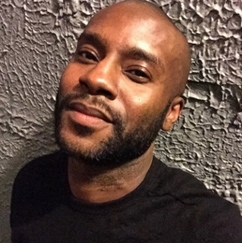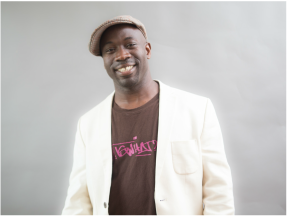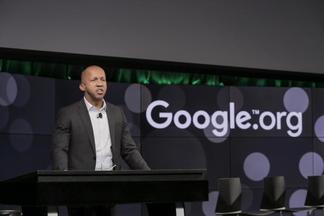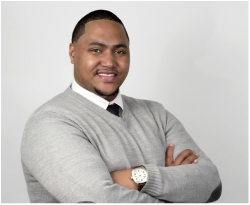 By: Philip Richardson I was 32 years-old when I took my first trip outside of the United States. I boarded an evening flight from John F. Kennedy airport — on the Indian airliner Jet Airways — which landed in Brussels the next morning, where to my surprise, signage and announcements were all made in French, Dutch, and eventually, English. Here was the Europe I had spent an entire academic life reading about. As a teenager I was self-proclaimed history-buff who enrolled in A.P. history courses well beyond the requirements needed for my high school diploma. To put it another way, I was in nerd heaven. From Brussels, I made a connection that landed in Milan, to spend two weeks with an architectural historian I befriended while doing laundry in South Brooklyn. His apartment in Bruzzano, a neighborhood in the northeast of Milan, was once a fifteenth century castle that was now converted into several apartment units. From there I purchased economy airfare to Sicily, visiting Palermo, and heading to Venice via train. My eyes were opened to the Old World when I stepped foot onto Italian soil. History permeated the Roman columns and aqueducts of Milan, the Norman castles of Palermo and the Piazza San Marco of Venice. I had stepped out of the pages of my history books, onto the very soil that cradled the feet of Julius Caesar, Napoleon Bonaparte, and Silvio Berlusconi. "It was my first personal experience with the double consciousness about which W. E. B. DuBois wrote, and so many African-American travelers speak of. I stepped into a forgetfulness that allowed me to be something more than just my race." A lot of what I experienced was familiar. Getting around Milan was easy thanks to its buses, light rail, and subway system. The very same things I use to get around in New York, Chicago or San Francisco. I ate finger food from street vendors while strolling through parks. I went to art galleries, ran into fashionistas, witnessed random quarrels between lovers, and even had breakfast at McDonald’s (although they don’t serve egg McMuffins).
For the first time in my life began to feel like a citizen of a whole world. The Italians I met were intrigued by my Americanness, and my Blackness. They were not afraid of me. My humanity was never questioned. I learned to let my guard down and truly be seen. It was my first personal experience with the double consciousness about which W. E. B. DuBois wrote, and so many African-American travelers speak of. I stepped into a forgetfulness that allowed me to be something more than just my race. It was a moment, perhaps the first, when I walked the Earth not as a black man. At least not in the vilified and adversarial ways its experienced in the United States. It’s a strange moment when you finally experience a comfort around total strangers who see you in similar ways as you see yourself. Philip is a freelance journalist, photographer and news assistant for The New York Times. He was born in Los Angeles and grew up in Dallas, Texas. A graduate of The University of Texas at Austin with a bachelor of arts degree in Africana Studies, he is currently living in New York City and is an M.A. candidate at the City University of New York, Graduate School of Journalism.  By: Elizabeth Meravi At Leaders of the Free World we believe in the power of international travel. We're highlighting the stories of several Black men whose international experience had lasting impact on their lives. Napoleon Maddox, musician, traveled to Japan at the age of 30 to promote his band and album. “It was my first time in Asia, experiencing a culture I'd read about and romanticized.” As a person of color, this experience was even more exceptional: “There were very few people of African descent in Japan and they have appreciation for African-American music, so my visit there was celebrated.” His trip lasted a week: he spent time performing and being interviewed as well as experiencing Japanese culture. When asked about the impact this trip had on him, Napoleon commented, “I was astounded by the peaceful nature of Japanese society. There was no gun violence reported on the news. I also learned a lot about myself”. He credits his good experience not only to the people he met but also to his own attitude. “I also learned a lot about myself and how I needed to take a more deliberate, responsible role in my own life... No place (or situation) was going to be any better than what I bring to it. I met people that responded well to me, but it was not just because they were kind (they were) but it also had a lot to do with the preparations I'd made to meet them.” From friendships he had made, and from his studies of Japan, Napoleon had created a strong base for his new experiences.
In retrospect, Napoleon feels he could have been even more proactive: “Perhaps I would have prepared myself to be more confident, focused and deliberate in my actions, realizing that my hosts were waiting on me to make requests according to my needs. “ When asked what advice he would give the person he was before the trip, he told LFW “You belong here. Go and own it.” About Napoleon: Napoleon Maddox is a true Hip-hop ambassador; working as a producer, human beatbox artist, vocalist, DJ and leader of a Hip-hop band called ISWHAT?!. He has created and performed music for cable and Public Television programs in the US and for The Arte network in Europe, North Africa and Middle East. He has worked with the US Embassy and Departments of Cultural Affairs in England, France, Estonia, Serbia, Germany and Morocco. Also mixing and developing unique collages and mixes for radio, films and art events, Napoleon is well known for his collaborations and creations across a wide array of artists in varied disciplines. He has worked with highly respected Hip-hop, Rock, Jazz and Classical musicians including Chuck D, DJ Spinna, DJ Logic, Saul Williams, Vernon Reid and the late great Les Paul.  Bryan Stevenson at Google headquarters in Mountain View, Calif., Feb. 26, 2016, 510 Media Bryan Stevenson at Google headquarters in Mountain View, Calif., Feb. 26, 2016, 510 Media By Ruby Maddox Ever since I read Bryan Stevenson's Just Mercy: A Story of Justice and Redemption, he's been a personal hero of mine. Last month Google announced that they would donating $1 million to Bryan Stevenson’s Alabama-based nonprofit, Equal Justice Initiative. (Read full story The Root here) According to their website, The Equal Justice Initiative provides legal representation to indigent defendants and prisoners who have been denied fair and just treatment in the legal system. "We litigate on behalf of condemned prisoners, juvenile offenders, people wrongly convicted or charged with violent crimes, poor people denied effective representation, and others whose trials are marked by racial bias or prosecutorial misconduct. EJI works with communities that have been marginalized by poverty and discouraged by unequal treatment." - EJI.org Stevenson and his team remind me that there still are real life heroes out there fighting for those forgotten by an unjust system. Many of us may never know what's it like to experience first-hand, the despair and frustration of institutionalized subjugation. While we continue to be horrified by what mass-incarceration has done to our communities and to our country, it's organizations like EJI that are providing hope. And men like Bryan Stevenson who are the real Leaders of the Free World.  Amilton Baptista Amilton Baptista By Elizabeth Meravi At Leaders of the Free World we are passionate about the transformative power of international travel. To that end, we are highlighting the stories of several young, Black men whose international experience had lasting impact on their lives. In some cases, these experiences spurred them to make a difference in their communities. When Amilton was in college at Umass Boston, he was chosen by his Africana Studies professor to go on a trip to Cuba, sponsored by the United Nations. He had been helping his professor edit a documentary on Cuba, and jumped at this opportunity to experience the Cuban culture for himself. “This was a once in a lifetime opportunity so I knew I had to take advantage.” He and his group sailed on a replica of a Spanish slave ship from the Bahamas and up the northern coast of Cuba, visiting the seaside cities of Matanzas and Havana. Amilton says about his experience, "It made me appreciate being out of my comfort zone and having to adapt to the culture that was surrounding me.” He found that as a person of color, he experienced privilege in Cuba, whose population is about 2/3 Black and mixed-heritage. The Cuban people were warm and welcoming, in stark contrast to the negative, America-hating portrayal of Cubans that Amilton had heard from the media in the US. “I realized how much influence the media has on the way that people think.” "My trip to Cuba proved that anything was possible." Amilton also discussed what it was like to be exposed to a different value system. “The most important thing is that Cubans value humanity over materials. Although Cuba is not rich with material things they are exceedingly rich in humanity and do not fit the definition of what Americans would describe as poverty.” He saw that the Cubans valued culture: “People in Cuba appreciate culture and have many supportive programs for musicians, painters, and other arts. In Cuba, the man who teaches people how to paint on TV is a celebrity and is respected by the people.” Amilton was amazed by the architecture and art of beautiful neighborhoods in Matanzas and Havana, where there were traditional colonial buildings as well as statues and sculptures. His experience left him with a lasting appreciation for Cuban culture.
"My trip to Cuba proved that anything was possible." Since then, Amilton has gone on to live abroad in Cape Verde, Brazil, and the Dominican Republic. That first experience abroad opened the door, he says: “Had it not been for this trip I don't feel that I would've ever accomplished living in those places.” He was challenged during his trip to Cuba in ways that allowed him to grow. About Amilton: Amilton is a first generation Cape Verdean-American from Roxbury, MA. As a youth he faced much adversity and nearly dropped out of high school before realizing that an education could afford him a good life. Amilton will be joining the staff at College Bound Dorchester, helping young at-risk adult students who are in pursuit of their HISET Certificate (formerly GED) to get into and graduate from college. He's also on the advisory board and ambassador for the Bigger Than My Block Movement at www.btmb.org. |
Archives
July 2020
Categories
All
|
 RSS Feed
RSS Feed